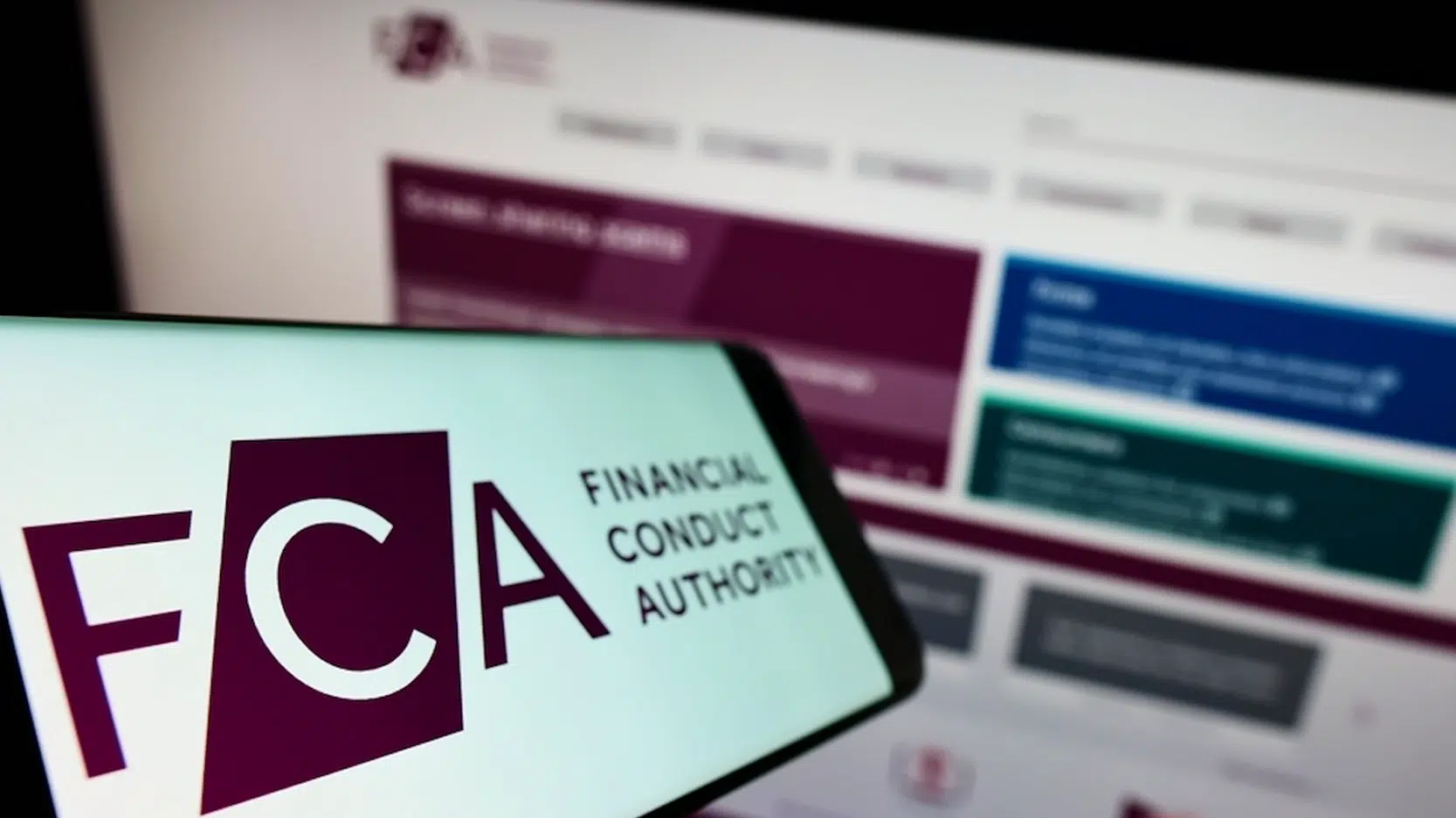A Guide to Responding to the Wave of FCA Impersonation Scams
While investors carefully guard against unauthorized dealers and investments promising falsely high returns, a new, more deceptive and destructive threat is quietly emerging—impersonation scams targeting financial regulatory bodies. These scammers exploit public trust in financial regulatory authorities, weaving elaborate lies to steal people’s hard-earned money. Recently, the UK’s Financial Conduct Authority (FCA) issued an urgent warning, exposing this disturbing wave of scams, the scale and sophistication of which demand the utmost vigilance from every investor and consumer.
A Quick Look at FCA Impersonation Scam Data for the First Half of 2025
Official FCA data reveals the staggering scale of this fraudulent activity. In the first half of 2025 alone, the FCA’s consumer helpline received 4,465 reports of scams impersonating its official staff. This malicious wave resulted in 480 consumers unfortunately falling victim and transferring funds to scammers. These numbers are not just cold statistics; they represent the real financial losses and emotional trauma suffered by hundreds of individuals and families.
Of all the reports, nearly two-thirds (approximately 66%) came from individuals aged 56 or older. This statistic is thought-provoking. It is no coincidence but the result of meticulous planning by scam syndicates. Scammers are well aware that consumers in this age group often have substantial retirement savings, which may be the largest assets they have accumulated in their lifetime. Reports from the U.S. Federal Trade Commission (FTC) also indicate a rise in scams targeting retirees, who are often defrauded of tens or even hundreds of thousands of dollars, sometimes leading to their retirement accounts being completely emptied.
Scammers employ multiple strategies to target these high-value individuals. They not only exploit the fact that retirees may be unfamiliar with emerging financial technologies (like cryptocurrency) and have lower awareness of digital risks, but more crucially, they use the identity of an authoritative body to weave a story full of ‘trust’ and ‘urgency.’ This makes victims mistakenly believe they are ‘solving a problem’ or ‘protecting their assets’ in a panic, rather than sending money to a stranger. This precise psychological manipulation is the fundamental reason for the high success rate of such impersonation scams.
| Data Type | Figures |
| Number of Reports | 4,465 |
| Number of Victims | 480 |
| Percentage of Victims Aged 56+ | Approximately two-thirds (approx. 66%) |
Analysis of Scammers’ Common Tactics
When scammers cloak themselves in the guise of a financial regulatory agency, their methods become more cunning and varied. Their core strategy is to exploit fundamental human psychological drivers—the fear of financial loss or legal punishment, and the greed for unearned gains—to lure victims in.
Tactic 1: The Dual Approach of False Inducements and Legal Threats
A common tactic involves using a ‘cryptocurrency wallet’ as bait. Scammers claim that the FCA has recovered funds from a crypto wallet illegally opened in the victim’s name. They promise to return this windfall, but only after the victim pays a so-called ‘processing fee’ or provides sensitive banking information to complete the transfer. This method preys on the fantasy of getting something for nothing, causing victims to lower their guard against risks in their excitement over an unexpected gain.
Simultaneously, another tactic uses fear to drive the scam. Scammers send fake emails claiming that a creditor has issued a ‘County Court Judgement’ against the victim. They demand payment to the FCA to settle the debt, creating a sense of urgency and panic about facing legal repercussions if they don’t pay immediately. The success of this strategy lies in creating a false ‘crisis,’ making victims believe they are ‘solving’ an urgent problem rather than making a suspicious transfer. Under immense psychological pressure, a person’s ability to think rationally is diminished, making them more likely to comply with the scammer’s instructions.
Tactic 2: The Vicious Cycle of “Recovery Scams” and “Pig Butchering”
An even more vicious and cruel tactic targets those who have already been victimized, delivering a ‘second blow,’ also known as a ‘double dip’ or recovery scam. Scam syndicates target victims who have already lost money in other investment scams (such as loan scams). They impersonate FCA officials, claiming they can help recover the previously lost funds. To ‘help,’ they require the victim to pay an upfront ‘fee,’ resulting in the victim suffering a second financial loss.
Research indicates that this ‘recovery scam’ tactic is deeply connected to the notorious ‘Pig Butchering’ scam model. In a ‘Pig Butchering’ scam, fraudsters often spend months, or even longer, building a fake emotional or personal connection to ‘fatten up’ their ‘pig’ (the victim). After the victim invests a large sum of money into a fraudulent platform and loses everything, the scammers don’t stop. They immediately switch roles, impersonating the FCA or another regulatory body, and offer a ‘fund recovery’ service to extract one last payment.
This method represents the ultimate evolution of scam tactics. It goes beyond merely exploiting authority; it preys on the victim’s extremely vulnerable psychological state of desperation to recoup losses after the initial blow. When victims are in a state of profound despair and helplessness, they will clutch at any ‘lifeline.’ Scammers exploit this mentality by offering a seemingly logical but false solution, leading to deeper exploitation. This reveals that financial fraudsters are not just greedy, but are also precise predators of human weakness, and their actions are utterly cruel and ruthless.
A Complete Defense Guide: How to Identify Scams and Protect Yourself
The best weapons against these impersonation scams are knowledge and vigilance. Here is a detailed guide to help consumers identify scams and protect themselves at the first sign of trouble.
Key Signs of an Impersonator
Any suspicious contact from a financial regulatory agency could be a scam. Here are several red flags to watch out for:
- Unsolicited Contact: Be extremely cautious if someone contacts you out of the blue via phone, text, email, or social media (like WhatsApp) claiming to be from the FCA or another government agency.
- Requests for Sensitive Information: A real government or regulatory agency like the FCA will never ask for your bank account PIN, password, credit card number, or other sensitive personal information.
- Creating a Sense of Urgency: Scammers often try to create panic or a sense of urgency, demanding that you take action ‘immediately,’ for example, ‘There’s a problem with your account, and you need to transfer funds now to protect them.’
- Demanding Specific Payment Methods: Real regulatory agencies will not ask you to pay fees using hard-to-trace methods like wire transfers, gift cards, cryptocurrency, or cash.
The Golden Rules for Verification
Taking proactive steps to verify is a crucial line of defense to avoid becoming a victim.
- Check the Official Register: Any financial firm or individual claiming to be associated with the FCA must be listed on the official Financial Services Register.
- Use Official Contact Information: Never use the phone numbers, email addresses, or website links provided by a potential scammer. Instead, use the contact information listed on the FCA’s official website (www.fca.org.uk) or call their consumer helpline at 0800 111 6768 to verify.
- Beware of ‘Clone Firms’: Scammers create fake websites using the name, address, and even the Firm Reference Number (FRN) of a legitimate company. Therefore, it’s not enough to just find the company on the register; you must carefully compare all details, such as the website and phone number, or directly use the contact information from the register for verification.
The table below compares the typical behaviors of real financial regulatory agencies and impersonation scammers, serving as a quick checklist:
| Aspect | Real Regulatory Agencies (e.g., FCA, FTC) | Impersonation Scammers |
| Method of Contact | Will never make unsolicited requests for sensitive information; typically communicates through official written correspondence or public notices on their website. | Contacts you via unsolicited calls, texts, or emails; often uses ‘call spoofing’ to fake their number. |
| Information Requested | Will never ask for sensitive personal information like PINs, passwords, or Social Security numbers. | Will ask for sensitive bank or personal information, claiming it’s for ‘identity verification’ or to ‘protect your account.’ |
| Handling of Funds | Will never ask you to transfer money to their account or demand an upfront fee to ‘recover funds.’ | Will demand that you transfer funds to a so-called ‘safe account’ or pay a ‘processing fee’ or ‘fine.’ |
| Payment Methods | Will never ask you to use untraceable payment methods like cryptocurrency, gift cards, or cash. | Will specify the use of untraceable payment methods like wire transfers, cryptocurrency, or gift cards. |
| Tone and Attitude | Professional and non-threatening; will not create a sense of urgency. | Uses an intimidating tone, creating panic and urgency, demanding immediate action. |
Victim Action Plan: What to Do If You’ve Been Scammed
If you find that you have unfortunately become a victim of a scam, responding calmly and systematically is key to mitigating the damage. Time is of the essence, so you must act immediately.
Step 1: Stop Further Losses Immediately, Contact Your Bank
The most urgent action to take upon realizing you’ve been scammed is to immediately contact your bank or payment service provider. Inform them of the situation and ask them to try to stop or reverse the suspicious transaction. Although the chances of recovering the funds are slim, this step is crucial as it may prevent further losses. Additionally, if your credit or debit card information has been compromised, immediately file a dispute or request a ‘chargeback’ with the card issuer.
Step 2: File an Official Report, Provide Information
Reporting the incident to the relevant law enforcement and regulatory agencies is not only about seeking help for yourself but also about making the scammers’ activities public, helping law enforcement combat crime, and protecting others from similar schemes.
| Organization Name | Service Area | Reporting Phone Number | Official Website Link |
| Action Fraud | England, Wales, Northern Ireland | 0300 123 2040 | www.actionfraud.police.uk |
| Police Scotland | Scotland | 101 | www.scotland.police.uk |
| FCA Consumer Helpline | UK | 0800 111 6768 | www.fca.org.uk |
| FTC (Federal Trade Commission) | USA | – | ReportFraud.ftc.gov |
| CFPB | USA | – | consumerfinance.gov/complaint |
| FBI | USA | – | ic3.gov |
Step 3: Protect Your Personal Information and Devices
If your personal information (such as your Social Security number, credit card or bank account numbers) or passwords have been compromised, take immediate steps to protect yourself.
- Change Passwords: Immediately change the passwords for all accounts that may have been compromised, especially if you use the same password across different websites.
- Run a Security Scan: If the scammer remotely accessed your computer, perform a full scan with security software immediately and remove any suspicious programs.
- Beware of Follow-Up Attacks: Scammers may try to use your compromised information for secondary scams. Continuously monitor your account activity and be vigilant for any suspicious changes in your financial or credit reports.
Conclusion: A Shared Responsibility to Safeguard the Financial Ecosystem
The case of FCA impersonation scams is a stark warning that the threat of financial crime is constantly evolving. These scammers exploit trust in authoritative institutions, combining advanced technological methods with precise manipulation of human psychology. This is not just simple financial theft; it is an erosion of the very foundation of trust in the financial system.
As a financial rebate platform, Cashback Island is committed not only to providing value back to our clients but also to helping them enhance their security awareness. We believe that the security of the financial ecosystem is not the sole responsibility of any single institution but requires the collective effort of every individual. By continuously publishing alerts about such scams, we hope to help our users improve their risk awareness, cultivate vigilance, and provide them with practical, actionable tools and guidance.
Cashback Island exposes multiple scam cases every month. Traders can browse the “Cashback Island Scam Alerts” in real-time to avoid falling for new types of financial fraud.
Related Articles
-
Major investment fraud incidents have recently occurred in Hong Kong, with two cases resulting in a total loss of nearly 24 million HKD. One business person was deceived by a fake stock investment platform, losing over 19 million HKD within four months, setting a record for the largest single online...2025 年 10 月 11 日
-
Police in India's Sri Ganganagar district recently dismantled a major financial investment scam, arresting eight suspects involved in fraudulent activities through cryptocurrency and foreign exchange trading platforms. The group lured over 5,000 investors with promises of guaranteed profits, illegally amassing 210 million rupees (approximately $2.42 million) over an 18-month operation....2025 年 10 月 11 日
-
In the internet age, everyone dreams of getting rich quick, but beware, this could make you an easy target for investment scam syndicates. Slogans that boast "guaranteed profits" and "no-risk returns" are often one-way tickets to losing everything. A recent real-life case in Malaysia brutally reveals just how terrifying these...2025 年 10 月 11 日












